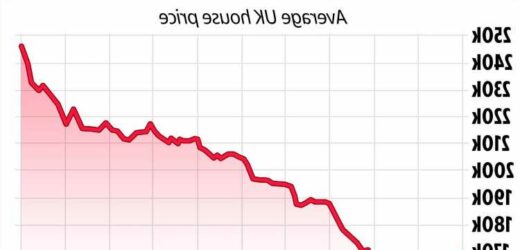PROPERTY prices have risen at the fastest pace since 2004 as the UK's house buying frenzy continues, new research shows.
Annual house price growth jumped to 13.4% in June – the biggest growth since November 2004, according to Nationwide Building Society.
Prices in June are now almost 5% higher than what they were three months ago in March.
The average house price now stands at £245,432, according to the building society.
Northern Ireland and Wales saw the biggest surge, with prices up by up to 14% year-on-year.
But Scotland and London lagged behind, rising by up to 7.3%.
It comes as Brits have been locking horns in bidding wars up and down the country to bag a home before the stamp duty deadline.
Buyers currently do not have to pay stamp duty on the first £500,000 of a home purchase up until the end of the month (June 30).
But from July 1, this relief will start to taper off, and buyers are racing to exchange before the looming deadline and save thousands.
What help is out there for first-time buyers?
GETTING on the property ladder can feel like a daunting task but there are schemes out there to help first-time buyers have their own home.
Help to Buy Isa – It's a tax-free savings account where for every £200 you save, the Government will add an extra £50. But there's a maximum limit of £3,000 which is paid to your solicitor when you move. These accounts have now closed to new applicants but those who already hold one have until November 2029 to use it.
Help to Buy equity loan – The Government will lend you up to 20% of the home's value – or 40% in London – after you've put down a 5% deposit. The loan is on top of a normal mortgage but it can only be used to buy a new build property.
Lifetime Isa – This is another Government scheme that gives anyone aged 18 to 39 the chance to save tax-free and get a bonus of up to £32,000 towards their first home. You can save up to £4,000 a year and the Government will add 25% on top.
Shared ownership – Co-owning with a housing association means you can buy a part of the property and pay rent on the remaining amount. You can buy anything from 25% to 75% of the property but you're restricted to specific ones.
Mortgage guarantee scheme – The scheme opens to new 95% mortgages from April 19 2021. Applicants can buy their first home with a 5% deposit, it's eligible for homes up to £600,000.
The Covid crisis has also meant less homes are being put up for sale, with experts predicting that no homes could be left on the market this summer.
It's caused house prices to soar and properties to sell within just days of being put up on the market.
These rocketing prices mean that it takes longer for Brits to save up for a home, Nationwide's chief economist Robert Gardner said.
"A 10% deposit is over 50% of a typical first-time buyer's income," he said.
"A potential buyer earning the average wage and saving 15% of take-home pay would now take five years to raise a 10% deposit."
Estate agent Andrews Property Group chief executive David Westgate indicated that prices could be getting out of control.
"It's starting to feel like prices are freewheeling with buyers snapping up properties, particularly those with generous outside space, as soon as they come onto the market," he said.
AJ Bell financial analyst Danni Hewson said house prices are unlikely to cool down because Brits are still looking to buy homes with enough space to work from home.
"Will people still be prepared to fork out ever increasing sums for their abode?" he said. "The answer is probably yes, for now.”
Source: Read Full Article



